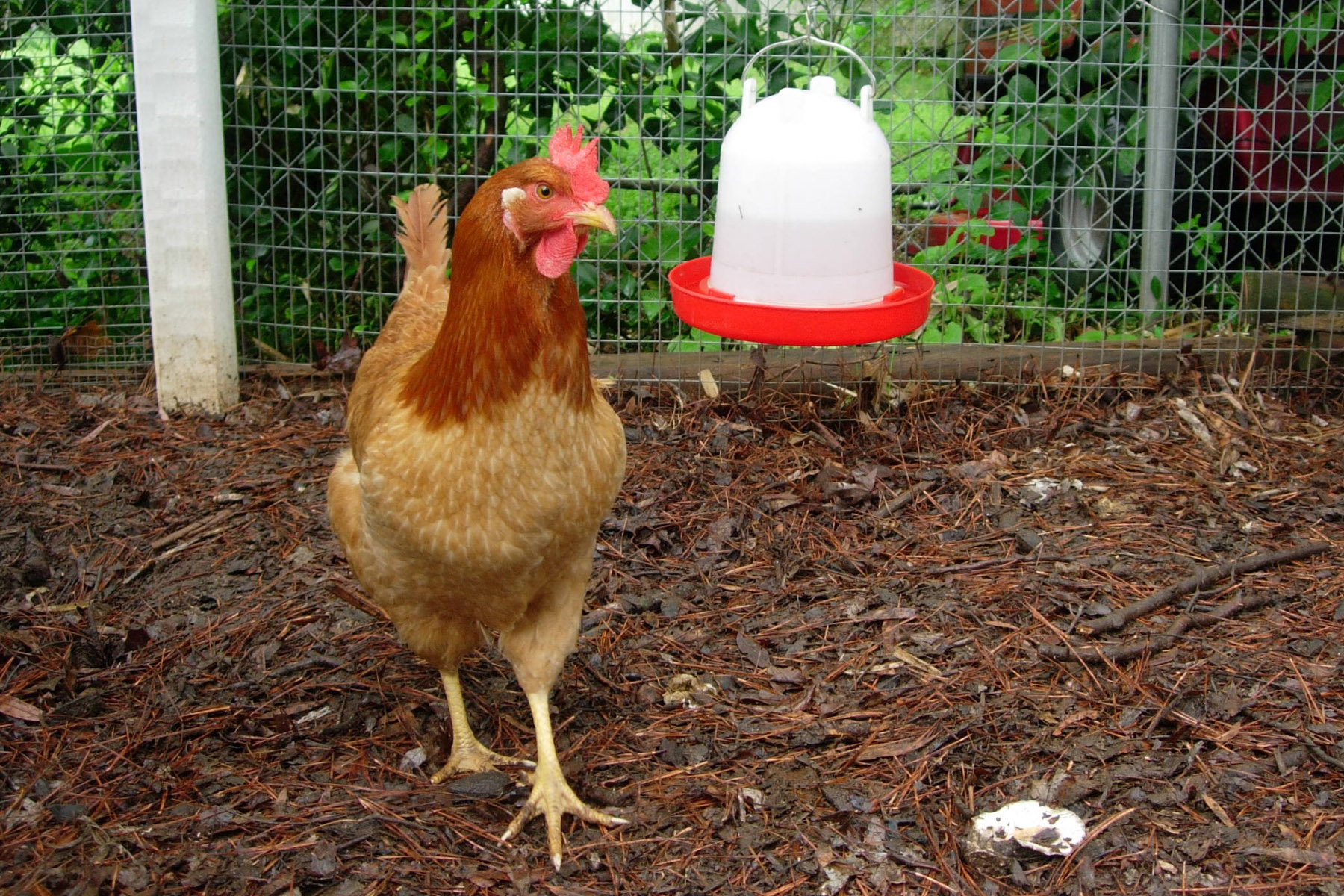
At the Tour D'Coop, chicken keepers show off their backyard coops. (Courtesy Tour D’Coop)
The Tour D’Coop is a yearly tour of over twenty urban chicken coops peppered throughout the city of Raleigh, North Carolina. Every year, thousands of local folks go on the Tour to learn about the benefits and challenges of keeping chickens in the city. The tour benefits Urban Ministries of Wake County, a local nonprofit that provides food, shelter, and medicine to people in crisis.
Stops on the tour are diverse, showcasing everything from the most pristine and artisanal hen houses to chicken coops scrapped together with spare wood and DIY materials. Coop owners often have other urban farming and sustainability interests, and a backyard set-up might also include vermicomposting, potbellied pigs, heirloom tomato plants, rain barrels, or bee boxes. For owners living in the middle of downtown Raleigh, a mid-size city filled with greenway systems that serve as wildlife corridors, predators like raccoons and snakes are a perpetual worry. For many, this serves as an opportunity to pay even closer attention to the local environment, with some coop owners installing wildlife cameras near their enclosures to observe threats.
Coop owners on the Tour are an eclectic bunch, including veterinarian and Tour volunteer M’Liss Koopman, Shark Tank winning contestant Justin Miller, and Karin Wiberg and her friend Dawn Marie Rozzo, creators of the book Chicken Haiku. While primary reasons for starting a flock might be to have quality eggs at the ready or to create compost for gardening, each coop owner mentioned how much the activities and personalities of their hens (and occasional roosters) add to their lives. “Sit down and watch them for a few hours,” says Koopman. “You’ll quickly find out they have a very complex society.” Miller agrees that they provide endless entertainment. “My fiancée and I will come out here (in the evenings) and let everybody out, the pigs hanging out and the dog and the chicken ... I tell everyone it’s like having a group of high school girls living in the backyard. Certain ones like other ones, they have their cliques. It’s funny.”
Listen to the audio postcard on this episode of Earth Eats












